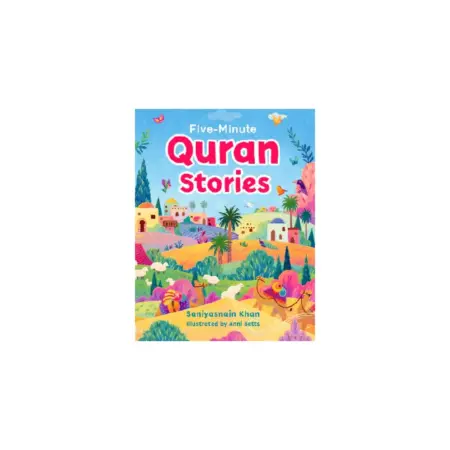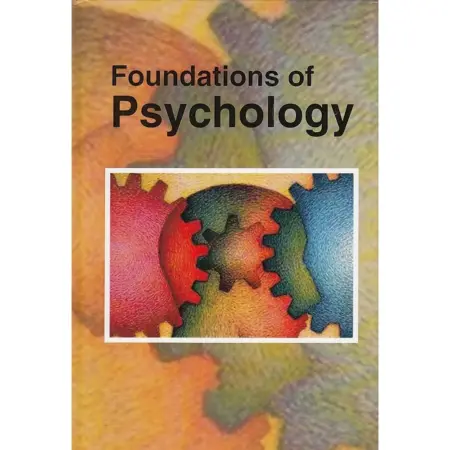- Brand: IdaraFazaill E Amaal Vol 2 Sheikh Muhammad Zakeriya Kandhlavi Idara Urdu
₹400.00Original price was: ₹400.00.₹320.00Current price is: ₹320.00. - Brand: ManshuratFear Please Disappear Ukht Husni Manshurat Urdu
₹250.00Original price was: ₹250.00.₹175.00Current price is: ₹175.00. - Brand: Daarul KitabFiqr Taceable 4 Vol. Set
₹650.00Original price was: ₹650.00.₹440.00Current price is: ₹440.00. - Brand: Daarul KitabFiqr Taceable 4 Vol. Set
₹700.00Original price was: ₹700.00.₹590.00Current price is: ₹590.00. - Brand: GoodwordFive Minute Quran Stories Saniyasnain Khan Hardbound Board Books Goodword English
₹1,350.00Original price was: ₹1,350.00.₹1,250.00Current price is: ₹1,250.00. - Brand: Daarul KitabForttess Of The Muslim Compiled By Said Wahf Al Qahtani
₹110.00Original price was: ₹110.00.₹90.00Current price is: ₹90.00. - Brand: DeobandFoundations Of Psychology Zainab Hamid Jan Dr Shawkat Ahmad Shah Adam English
₹180.00Original price was: ₹180.00.₹144.00Current price is: ₹144.00. - Brand: DeobandFreedom Of Thought And Islam Dr Shafique Ali Khan Adam English
₹500.00Original price was: ₹500.00.₹300.00Current price is: ₹300.00. - Brand: Good Tree PressFrom The River To The Sea:A Colouring Book Nathi Ngubane Good Tree Press English
₹120.00Original price was: ₹120.00.₹90.00Current price is: ₹90.00.- Educational Themes
- 1. The Nakba and Historical Memory
- The book introduces children to the Nakba, the mass displacement of Palestinians in 1948. Ngubane handles this sensitive topic with care, using visual metaphors and age-appropriate language to explain:
- What displacement means
- Why homes and families were uprooted
- How memory and identity are preserved through art and storytelling
- 2. Culture and Identity
- Children learn about:
- Palestinian clothing and embroidery
- Traditional foods and farming practices
- Arabic calligraphy and poetry
- The significance of Jerusalem and Al-Aqsa Mosque
- Brand: Daarul KitabGaar-E-Soor By Dr. Hafiz Usman Ahmed
₹500.00Original price was: ₹500.00.₹400.00Current price is: ₹400.00. - Brand: Daarul KitabGaar-E-Soor By Dr. Hafiz Usman Ahmed
₹500.00Original price was: ₹500.00.₹400.00Current price is: ₹400.00. - Brand: Daarul KitabGazwat Wa Saraya Se Hasil Honey Wale Ganaim
₹650.00Original price was: ₹650.00.₹510.00Current price is: ₹510.00. - Brand: Daarul KitabGazwat Wa Saraya Se Hasil Honey Wale Ganaim
₹650.00Original price was: ₹650.00.₹510.00Current price is: ₹510.00. - Brand: MmiGhair Muslimon Se Taalluqat Aur Unke Huqooq Sayyid Jalaluddin Umari Mmi Urdu
₹345.00Original price was: ₹345.00.₹293.25Current price is: ₹293.25.- Historical Context: The book provides a historical overview of the interactions between Muslims and non-Muslims, tracing the development of Islamic principles regarding non-Muslims from the time of the Prophet Muhammad (PBUH) to the present day.
- Rights of Non-Muslims: The book outlines the rights and protections afforded to non-Muslims in an Islamic state.
- It discusses issues such as religious freedom, property rights, and legal protections.
- Ethical Guidelines: The book emphasizes the ethical and moral guidelines that Muslims should follow in their interactions with non-Muslims.
- It highlights the importance of justice, fairness, and respect in all dealings.
- Case Studies: The book includes case studies and examples of historical events and figures to illustrate the principles discussed.
- These examples help readers understand how Islamic principles have been applied in real-life situations.
- Contemporary Relevance: The book addresses the relevance of these principles in the modern world.
- It discusses contemporary issues and challenges related to the rights and treatment of non-Muslims in Islamic societies.
- Brand: Al HasanatGharibi Hatao By M Abudlah (Al Hasant) Urdu (Pb) ₹20.00
- Structure and Key Themes
- The book is divided into thematic chapters that explore the causes, consequences, and cures for poverty from an Islamic perspective.
- 1. Root Causes of Poverty
- Abdullah identifies both external and internal factors:
- Economic exploitation and unjust systems
- Neglect of zakat and waqf institutions
- Illiteracy and lack of vocational training
- Materialism and hoarding
- Government apathy and corruption
- He critiques modern capitalism while urging Muslims to self-reflect on their role in perpetuating inequality.
- 2. Islamic Economic Principles
- This section is a highlight for readers interested in faith-based economics. Topics include:
- Zakat as a redistributive tool
- Sadaqah and Qard-e-Hasan (benevolent loans)
- Waqf institutions and their historical role
- Prohibition of riba (interest) and its impact on poverty
- Abdullah argues that if these principles were revived and implemented, poverty could be drastically reduced.
- 3. Historical Models of Welfare
- Drawing from Islamic history, the author presents:
- The welfare policies of Umar ibn al-Khattab (RA)
- The social justice of Ali ibn Abi Talib (RA)
- The charitable networks of the Ottoman Empire
- The role of madrasahs and khanqahs in supporting the poor
- These examples serve as blueprints for modern reform, showing that Islamic civilization has long prioritized economic justice.
- 4. Contemporary Challenges
- Abdullah doesn’t shy away from addressing modern issues:
- Urban poverty and slums
- Unemployment and underemployment
- Misuse of zakat funds
- Lack of transparency in charitable institutions
- Disconnect between religious teachings and economic policies
- Brand: Al HasanatGharibi Hatao By M Abudlah (Al Hasant) Urdu (Pb) ₹20.00
- Structure and Themes
- The book is organized into thematic chapters that explore:
- 1. Causes of Poverty
- Abdullah identifies both external and internal factors, including:
- Economic exploitation
- Lack of education
- Social injustice
- Neglect of zakat and waqf systems
- Materialism and hoarding
- He critiques modern capitalism while also urging Muslims to self-reflect on their role in perpetuating inequality.
- 2. Islamic Economic Principles
- This section is a highlight for readers interested in faith-based economics. Topics include:
- Zakat as a redistributive tool
- Sadaqah and Qard-e-Hasan (benevolent loans)
- Waqf institutions and their historical role
- Prohibition of riba (interest) and its impact on poverty
- Abdullah argues that if these principles were revived and implemented, poverty could be drastically reduced.
- 3. Historical Models of Poverty Alleviation
- Drawing from Islamic history, the author presents:
- The welfare policies of Umar ibn al-Khattab (RA)
- The social justice of Ali ibn Abi Talib (RA)
- The charitable networks of the Ottoman Empire
- The role of madrasahs and khanqahs in supporting the poor
- These examples serve as blueprints for modern reform, showing that Islamic civilization has long prioritized economic justice.
- 4. Contemporary Challenges
- Abdullah doesn’t shy away from addressing modern issues:
- Urban poverty and slums
- Unemployment and underemployment
- Corruption in charitable institutions
- Misuse of zakat funds
- Government apathy and failed welfare schemes














